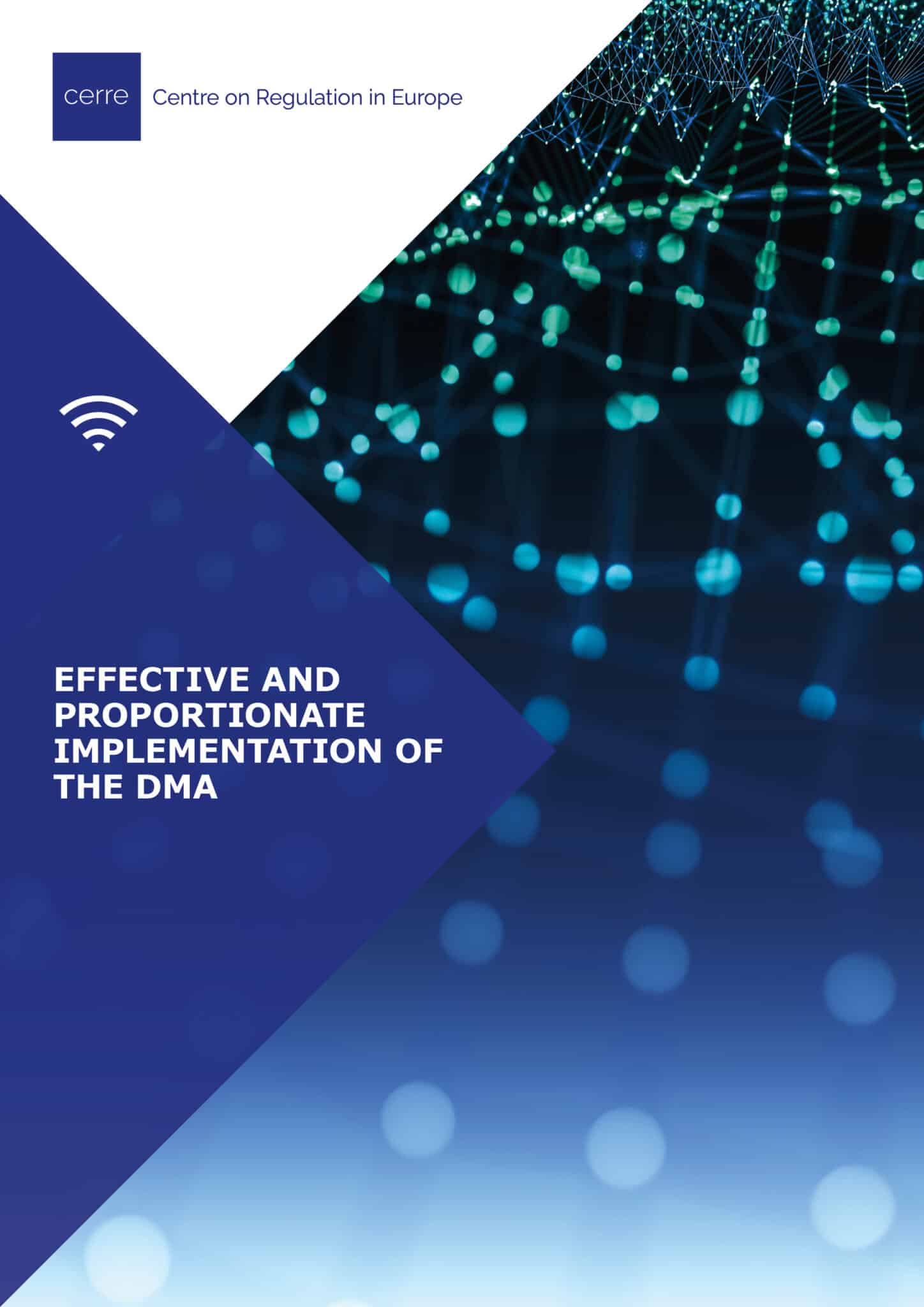While the Digital Markets Act (DMA) negotiations attracted much media attention, the success of the DMA in creating contestability will crucially depend on its implementation, an issue that remains largely unexplored.
CERRE releases its latest series of issue papers all related to different groups of provisions in the DMA, focusing on the trade-offs around the different possible interpretations of the text. The issue papers cover the transparency provisions related to online advertising, obligations on switching tools and choice screens, prohibition of self-preferencing, data access provisions, and horizontal and vertical interoperability obligations.
DMA TRANSPARENCY REQUIREMENTS IN RELATION TO ADVERTISING
The transparency provisions in the DMA have the potential to make a significant difference in the advertising ecosystem. They also have the potential to be rendered ineffectual if the processes for granting consent for transactional data and requesting both kinds of data are not designed in a manner that encourages transparency.
This issue paper looks into the provisions in the DMA that aim to tackle various problems of concentration in the market for online advertising, and elaborates on them in view of the DMA’s overarching goals, contestability and fairness.
The author, CERRE Academic Co-Director Sally Broughton Micova argues that crucial definitions need to be established, namely of advertisement, publisher, and metrics, as these will have significant implications for the effects of the DMA. Furthermore, the potential to improve contestability and fairness in the advertising ecosystem could be stymied by overly cumbersome processes for consent or requests, or by ineffective delivery of the information that is supposed to be made transparent. Lastly, with user fairness considerations at the forefront, the implementation of the advertising transparency requirements in the DMA could encourage industry-wide re-evaluation of measures of value and effectiveness and a move away from personal data-intensive types of advertising.
DMA: SWITCHING TOOLS AND CHOICE SCREENS
In the years preceding the adoption of the DMA, there had been growing concern, reflected in a variety of competition cases, regarding the ability of the largest gatekeeper platform firms to leverage from one service into another, by making their proprietary offering the ‘default’ for users.
In this paper, CERRE Research Fellow Amelia Fletcher focuses on the provisions in the DMA that address these problems in relation to gatekeeper undertakings. The author highlights some intrinsic challenges associated with any requirements that seek to change end-user behaviour, and examines each of the provisions in more detail, highlighting questions of interpretation, and finally emphasising some possible limitations to their effectiveness.
THE PROHIBITION OF SELF-PREFERENCING IN THE DMA
In the years preceding the adoption of the DMA, the issue of self-preferencing has appeared in the context of e-commerce platforms, search engines, and mobile app stores, but it is of broader concern. Self-preferencing can be seen as part of the platform’s design decision, how a platform manages its ecosystem, which includes decisions about the treatment of third-party products and services relative to its own products and services.
In this paper, CERRE Research Fellow Martin Peitz argues that the case against self-preferencing may look clear from a theory point of view, however, its implementation connected to the DMA obligations is not without questions: what is a separate product or service, what is a third-party or a fist-party offer, and are scenarios affecting business users also included?
It can be challenging to determine the absence of self-preferencing and distinguish it from legitimate differential treatment, in particular when ranking is provided by a self-learning algorithm. The author claims that economic analysis can be a useful tool for making this distinction and providing guidance on whether the application of the prohibition is actually in line with the objectives of the DMA. Empirical analyses have shown self-preferencing might increase consumer welfare in some instances. Thus, if the DMA aims to promote fairness and contestability for the benefits of consumers, economic analysis should be taken into account to ensure that the prohibition focuses on those instances of self-preferencing that are likely to be against market contestability and the long-term interest of consumers.
DATA ACCESS PROVISIONS IN THE DMA
Data, especially data on consumer behaviour, is an essential input factor in the digital economy. As such, data-driven advantages can spur positive feedback loops which, in turn, create barriers to entry. To counter this, the DMA includes several provisions that oblige gatekeepers to share data created by users while using the gatekeeper’s core platform service. The text includes two main obligations in this regard: a data portability right for business users and end users; and a data access provision for search engines.
This paper, authored by CERRE Academic Co-Director Jan Krämer, takes stock of both obligations mentioned above. When it comes to the former, issues arise on the interpretation of what constitutes observed data (and consequently exactly what data falls under this obligation), the contextual data that needs to accompany it in order for recipients to be able to extract information, and how consent will be handled, among other relevant issues. When it comes to the latter, the tension between privacy and contestability, the scope of data to be shared (relating to the query, the search results page, and the user), who can receive access to the data, and the terms in which the access will be granted are the most relevant points of contention.
Overall, the numerous questions that arise when implementing these provisions will likely mean that ultimately many of the issues will need to be resolved in courts. Unless the Commission is willing to impose interim measures to guide implementation when it comes to key trade-offs, access may not be provided for years to come.
DMA: HORIZONTAL AND VERTICAL INTEROPERABILITY OBLIGATIONS
To counter the high degrees of concentration which have developed in digital markets, the DMA has mandated the interoperability of platforms, which forces companies to allow some functionalities to be used indifferently across platforms via appropriate information exchange. This paper discusses the provisions in the DMA relating to both horizontal interoperability (limited to messaging services) and vertical interoperability (access obligations related to OS or hardware capabilities, and the possibility to install third-party apps and sideload apps).
CERRE Academic Co-Director Marc Bourreau highlights multiple issues that may arise with the implementation of the aforementioned obligations. Regarding horizontal interoperability, on the one hand, one should take into account the interplay between interoperability and multihoming; the geographical scope of interoperability has to be clarified; and it should be considered to apply interoperability requirements only to a subset of “basic functionalities”. Regarding vertical interoperability, the paper deals with how gatekeepers could process multiple access requests effectively; proposes solutions regarding the definition of interfaces, and offers approaches to handle concerns about security and integrity.
These papers are part of a bigger CERRE project entitled ‘Effective and Proportionate Implementation of the DMA’. The next paper, analysing the institutional and procedural questions of the implementation, will be released on 5 December, with the final recommendations paper to be published on 12 December.







